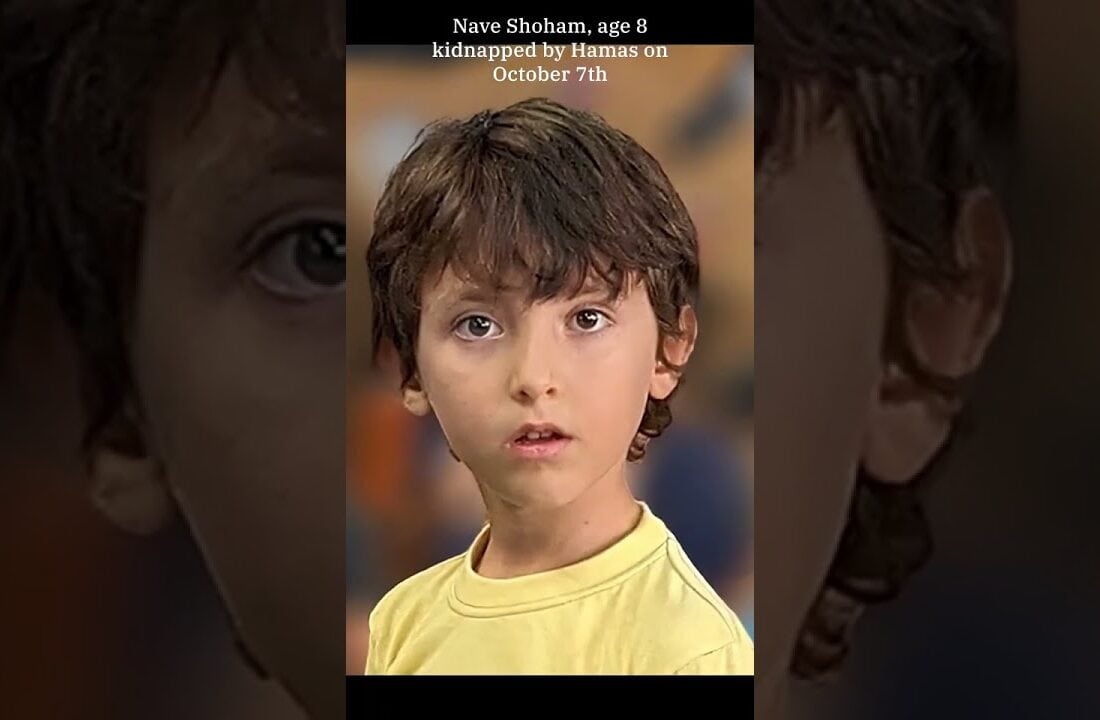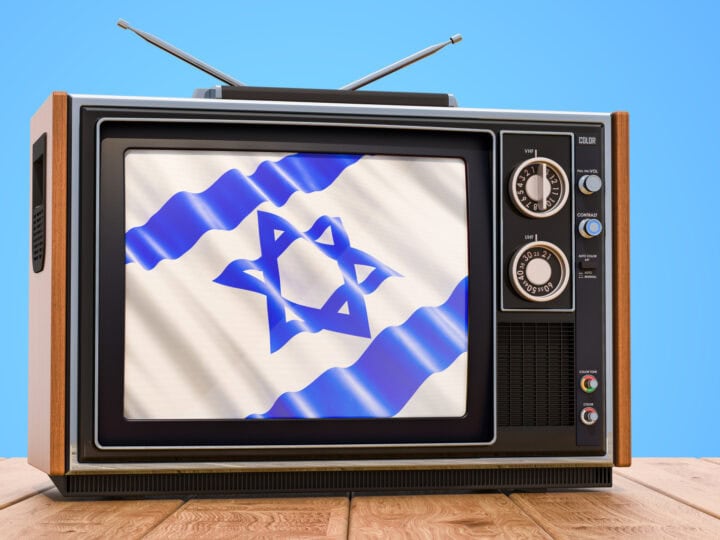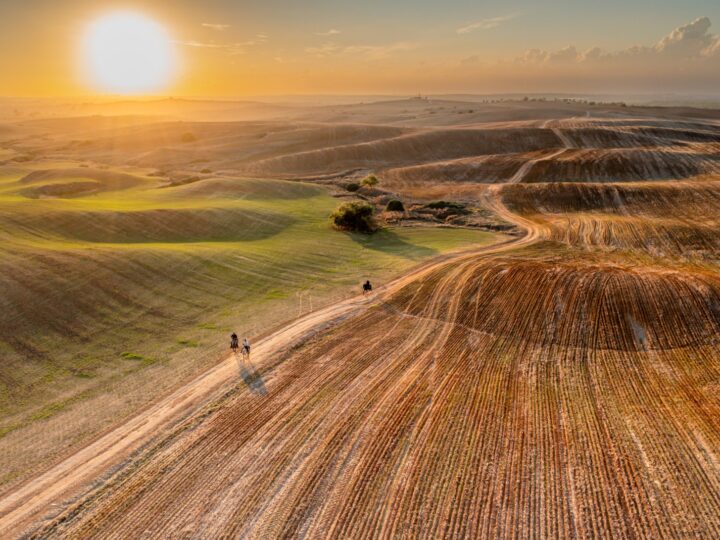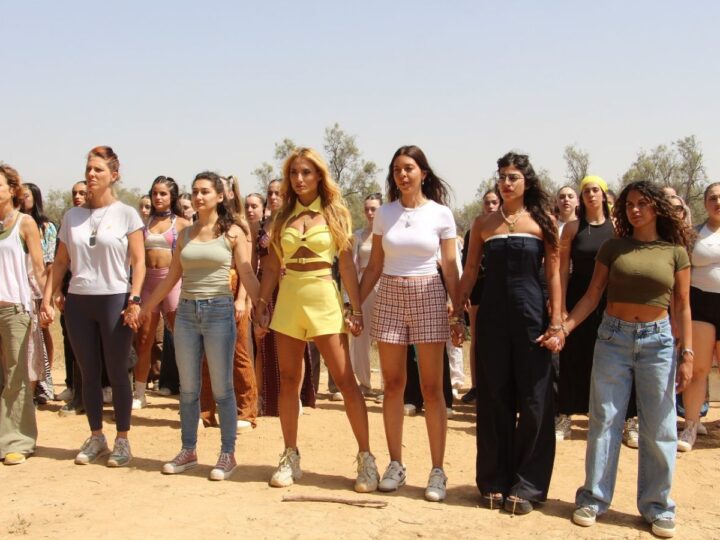Suffering is hard to quantify. There can be no doubt, however, that Gilad Korngold is dealing with an unimaginably large load.
Seven members of his family were kidnapped during the Hamas orgy of cruelty on October 7, and three other relatives murdered.
Among the 240 Israelis kidnapped were Korngold’s son, Tal Shoham (38), daughter-in-law Adi (38), grandson Naveh (8) and granddaughter Yahel (3½).
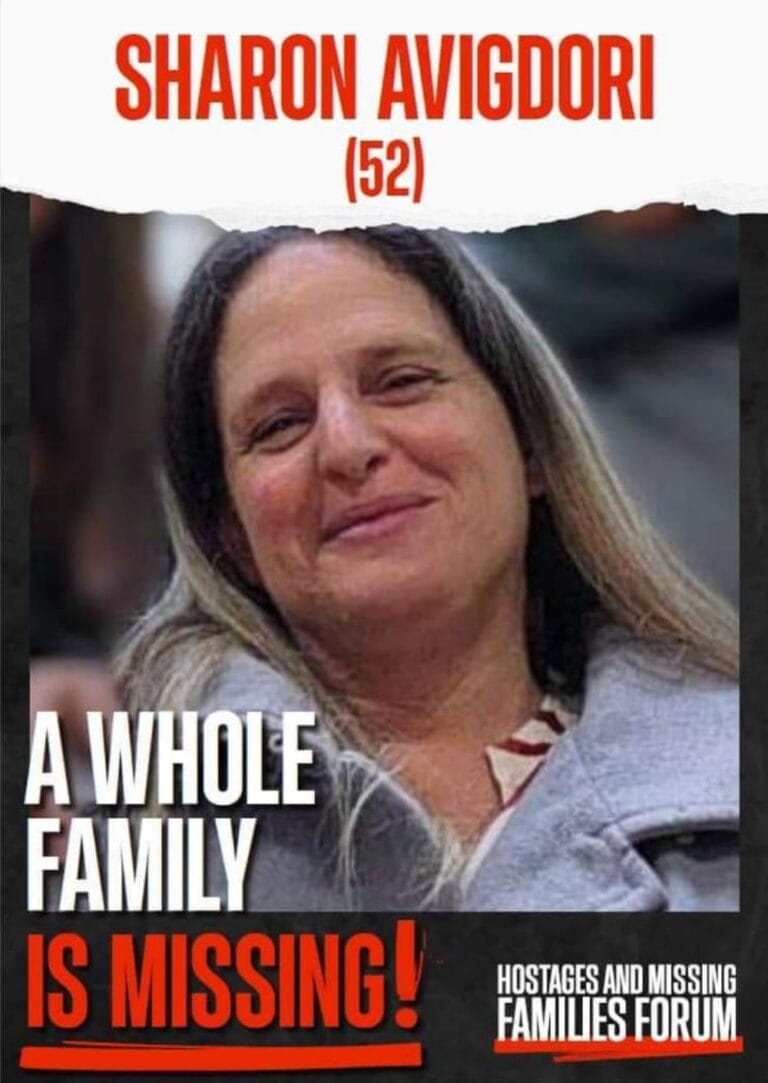
Also taken hostage were Adi’s mother, Shoshan Haran, and aunt, Sharon Avigdori, with her 12-year-old daughter, Noam. Adi’s father, Avshalom Haran, was murdered along with his sister Lilach Kipnis and her husband Eviatar.
Now almost a month since the torment began, Korngold says the only information he has from the Israeli authorities is that his family members were kidnapped to Gaza.
“I don’t know if they are dead or alive, what condition they are in, if they have separated the mothers from the children or if the children are even together. Every day is a torment of not knowing.”
He says it is especially important that the Red Cross, which has not visited the hostages up until now, see them and find out what medicines or treatment they need.
On that day…
On October 7, the Shohams were on their regular monthly visit to family on Kibbutz Be’eri. Adi Shoham had grown up there and it’s where her parents and many other relatives still lived.
Once a pastoral setting known for its spring festival when thousands of red anemones blossom, Be’eri bore the largest brunt of Hamas terror. Around 70 terrorists stormed the kibbutz and murdered 130 of its 1,100 members.
Witnesses say the Shohams were holed up in their safe room when terrorists set fire to the property, forcing them out. That’s when seven family members were taken hostage.
The boy behind the AI clip
Eight-year-old Naveh is the subject of an AI campaign to raise awareness of the plight of those kidnapped.
“Someone in Gaza needs to talk to you” are the chilling opening words of the clip, which was produced by Danielle Ofek and Shiran Mlamdovsky Somech, founder of Generative AI for Good.
“I miss my friends, I miss playing soccer, Mom, and I even want to go back to school already. Do my friends even think about me? I keep thinking that it’s just a story but it’s such a bad one, who would write such a kind of story? I want to go home,” Naveh pleads.
Another clip is made from a home video in which Naveh is shown alongside his blonde curly-haired little sister. He reads from the well-known children’s book, Mr. Happy. Interspersed with his sweet voice are the gruesome images of a child’s bedroom with blood-soaked books, toys and bedding.
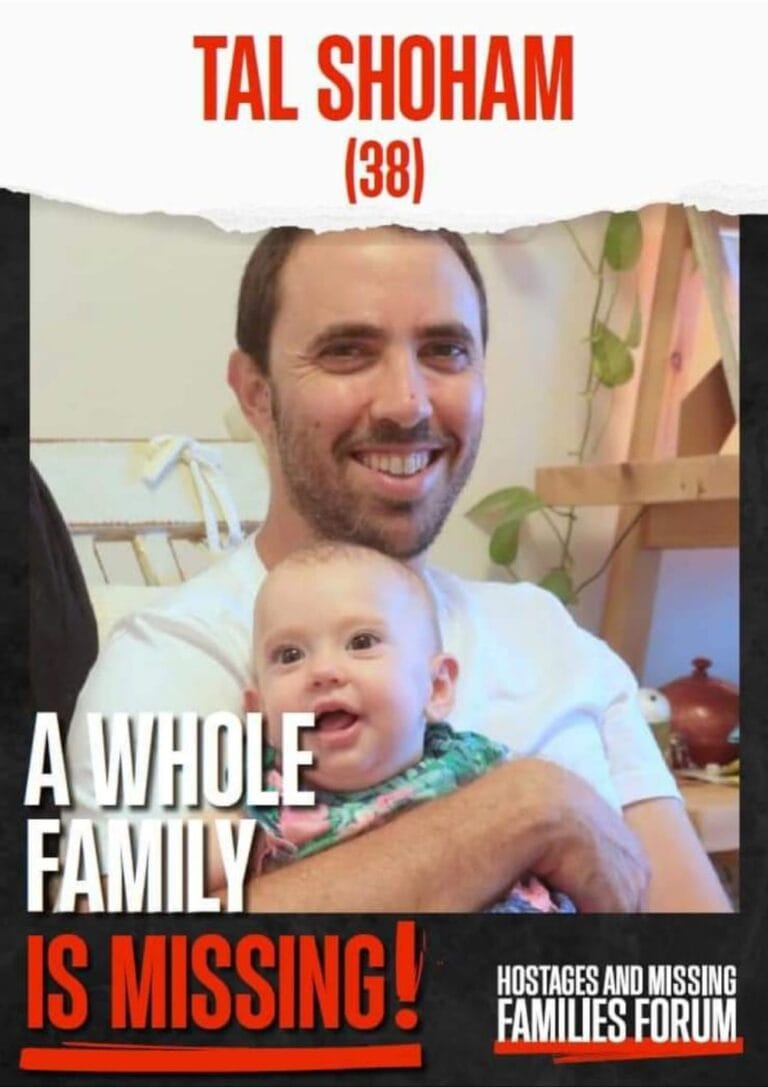
Thinking back to better days, Korngold remembers Naveh as his intelligent and beloved grandson who likes to play football, read Harry Potter, build with Lego and do puzzles.
“Just a few weeks before, he told me that he had almost completed the 2,500-piece 3D puzzle we had bought for his birthday.”
Korngold describes his in-laws as a “beautiful family. We used to celebrate all the birthdays and holidays together. Their home was always open and relaxed, as a family should be.”
He especially misses Avshalom, Adi’s father who was murdered. “He was my close friend. We could talk about anything.”
If something terrible happens
Korngold lives on Kibbutz Gvulot, which was spared a terrorist infiltration on that fateful day as it is located further inland, 12 kilometers from the Gaza border. A few individual terrorists were captured in its fields during the first two weeks of the war.
However, Gvulot has not escaped the rockets which Hamas has aimed at the Gaza border communities of Israel for close to two decades.
As Korngold describes it: “We know we have 15 seconds to enter the safe room and it’s not frightening after so many years. It’s better than living 2 kilometers from the Gaza border, as 22 kibbutzim do.”
Korngold’s voice is firm during a recent press conference but it breaks when he talks about the agreement he came to with the Israeli military liaison that updates him three times a week on the situation.
“We have an agreement that if something terrible happens he won’t call me at night. And before we begin any conversation he reassures me that nothing has happened. Only then do we continue to talk.”
Besides Israeli officials (he also met with President Herzog), Korngold is also in contact with the government of Austria, of which he and his son are citizens, and with the German government, as his grandchildren hold passports of that country.
He believes all governments must press to release the hostages, especially the women and children.
“It’s impossible that babies, children, mothers and grandmothers are imprisoned in deep tunnels underground. The voices of the world must be raised now to release them.”
What worries him “every minute and all the time” is an extended ground invasion and that soon the hostages will be used as human shields.
He is also emphatic that before truckloads of gasoline and food are allowed into Gaza, the kidnapped women and children should be released.
“They are not prisoners of war. These are innocent women and children and they need to be released immediately.”




